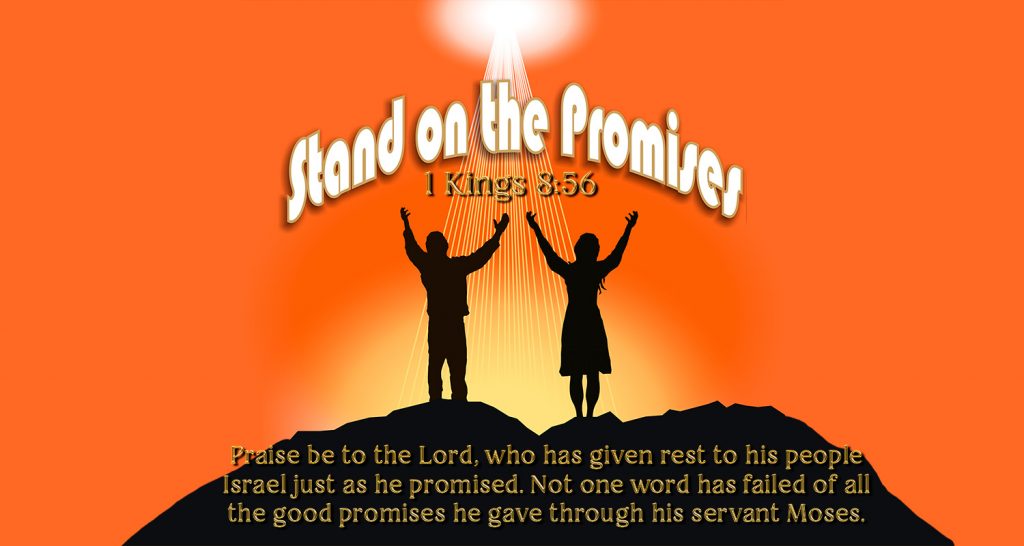For this is what the LORD says: “I will extend peace to her like a river, and the wealth of nations like a flooding stream; you will nurse and be carried on her arm and dandled on her knees. As a mother comforts her child, so will I comfort you; and you will be comforted over Jerusalem.” Isaiah 66: 12, 13, NIV.
Gracious God, we have heard of “peace like a river.” Now we would like to experience it. Therefore, we pray that Your Holy Spirit will come very close, and bring Your peace to our lives. This we pray, in the blessed name of Jesus, the Christ. Amen.
It always inspires a feeling of warmth within me whenever I read in Scripture where the LORD is portrayed, as a mother caring for Her child, or, having motherly feelings toward His children (Isaiah 49: 15, 16; Matthew 23: 37b). I am not at all surprised that God would use a mother figure to portray His loving care and concern for Israel. After all, I do not know of any love, after God’s, that is stronger than a mother’s love for her child. Or of any person, who can comfort a fretful child, the way a mother can. Of course, there are always exceptions to the rule.
The chapter from which our Scripture is taken, begins with God’s comments on the way He views the worship Israel offers Him. The first concern is the place of worship (the temple). How important is that, in God’s consideration of things, if, nowhere, in all of creation, is considered big enough to contain Him, who is Creator of everything? “This is what the LORD says: ‘ “Heaven is my throne, and the earth is my footstool. Where is the house you will build for me? Where will my resting place be? Has not my hand made all these things, and so they came into being?” ‘ declares the LORD” (1-2a). We know, that in Israel’s history, the time came, when the temple was considered of greater importance to the people, than the Lord of the temple! The devotion that belonged only to God was constantly being given to other things.
The next point of concern is the attitude of the worshipers. God begins with what He considers acceptable worshipers, ” ‘ “This is the one I esteem: he who is humble and contrite in spirit, and trembles at my word. . .” ‘ ” (2b). Remember when Jesus had the conversation with the woman at the well? His response to her inquiry concerning the real place of worship, completely disregarded place, and placed importance on people: “Jesus declared, ‘ “Believe me, woman, a time is coming when you will worship the Father neither on this mountain nor in Jerusalem. . .” Yet a time is coming and has now come when the true worshipers will worship the Father in spirit and truth, for they are the kind of worshipers the Father seeks. God is spirit, and his worshipers must worship in spirit and in truth” ‘ ” (John 4: 21, 23, 24).
In speaking about the destiny of Jerusalem, God declared that He would “extend peace to her like a river, and the wealth of nations like a flooding stream[.]” God had great and wonderful plans for this city, but once again, Israel was giving to a place, the devotion and love that was due only to their Heavenly Parent! On this city that had become the pride and joy of the Jews, God used the metaphor of a nanny, “you will nurse and be carried on her arm and dandled on her knees.” For a time God allowed His people to place their love and expectations on Jerusalem, the way a small child looks up to his or her caregiver.
But the duties of motherhood, were reserved for God alone. God knew the destiny that awaited Israel. Because of their disobedience, they would be carried away captive, and separated from their beloved Jerusalem. “As a mother comforts her child, so will I comfort you; and you will be comforted over Jerusalem.” When those days of weaning would come, and they would be carried into captivity, only God, as the Heavenly Parent, would be able to “comfort” them “over Jerusalem.” Only His peace would be sufficient then.
Like the woman at the well, God was trying to help Israel to understand what was the important element in worship. For Israel, the lesson to be learned was, that to God, it was not the place, but the Person, that was important. “[T]he true worshipers will worship the Father! The Samaritan woman had to be taught that it was the attitude of the worshipers, that was important to God. When these two elements are combined, then God’s people will offer Him acceptable worship, and “peace like a river” will fill His courts!
